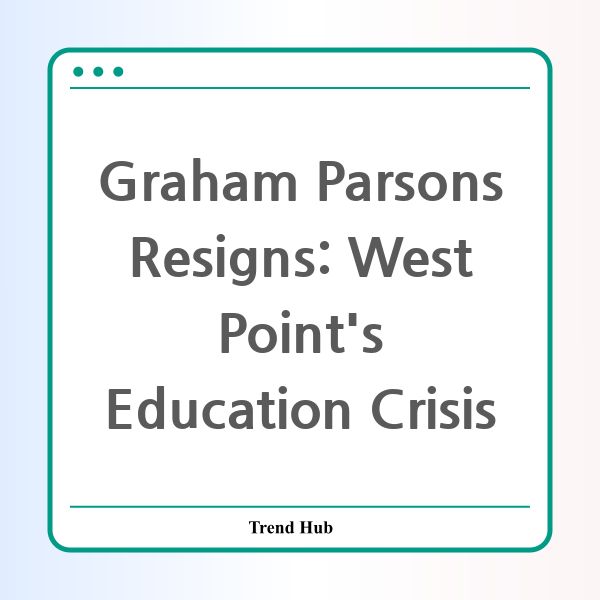* This website participates in the Amazon Affiliate Program and earns from qualifying purchases.

Have we reached a tipping point in academic freedom at West Point? The recent resignation of Graham Parsons, a philosophy professor with 13 years of service at the U.S. Military Academy, raises critical questions about the evolving educational landscape in military institutions. His departure, prompted by significant shifts in curriculum that align with political ideologies, has ignited discussions about the future of higher education in the military.
Parsons' resignation is not merely a personal decision; it reflects a broader crisis within the academy. In a poignant statement, he articulated his dismay over the changes initiated by the Trump administration, which he argues have led to a systematic dismantling of West Point's educational principles. He criticized the institution for abandoning its commitment to providing a well-rounded, nonpartisan education vital for future Army officers.
Historically, West Point has prided itself on fostering critical thinking and intellectual diversity. However, under recent directives, Parsons claims that courses covering essential topics like race, gender, and power dynamics have been eliminated or heavily censored. Programs such as "Topics in Gender History" and "Race, Ethnicity, Nation" have gone by the wayside, striking a blow to the academic integrity of the institution.
This trend is alarming and begs the question: What does the future hold for cadets deprived of a comprehensive education? The absence of influential voices like James Baldwin and Toni Morrison from the curriculum signifies a troubling trend towards ideological conformity that undermines the very foundation of academic inquiry.
Furthermore, West Point has implemented policies restricting faculty members from discussing their work publicly, thereby stifling academic freedom. This situation raises concerns about the implications for scholarly research in contentious areas such as masculinity and war. The faculty's struggle for autonomy reflects a broader challenge faced by educators across the nation—how to uphold academic standards in the face of political pressure.
Parsons' resignation illustrates a critical moment of reflection for military education institutions. As he stated, "If the academy can’t convincingly invoke the values of free thought and political neutrality when they are needed most, it can’t accomplish its mission." This assertion highlights the importance of preserving a space for diverse perspectives and open debate within military education.
While Parsons' decision might feel like a loss for West Point, it serves as a rallying cry for those who advocate for academic integrity and freedom. The challenges ahead for the academy will be substantial, but they also present an opportunity to reaffirm its core mission. Will West Point choose to embrace its foundational values or continue down the path of ideological censorship? The choice will define its legacy and impact the future of military leaders.
In conclusion, Graham Parsons’ resignation is more than just a personal decision; it is a clarion call for academic freedom in military education. As institutions navigate the delicate balance between education and political influence, the voices of dissent will be crucial in shaping an environment that encourages intellectual growth and critical thinking. It is vital for West Point and similar institutions to reflect on their foundational values and strive to provide future leaders with the robust education they deserve.
* This website participates in the Amazon Affiliate Program and earns from qualifying purchases.